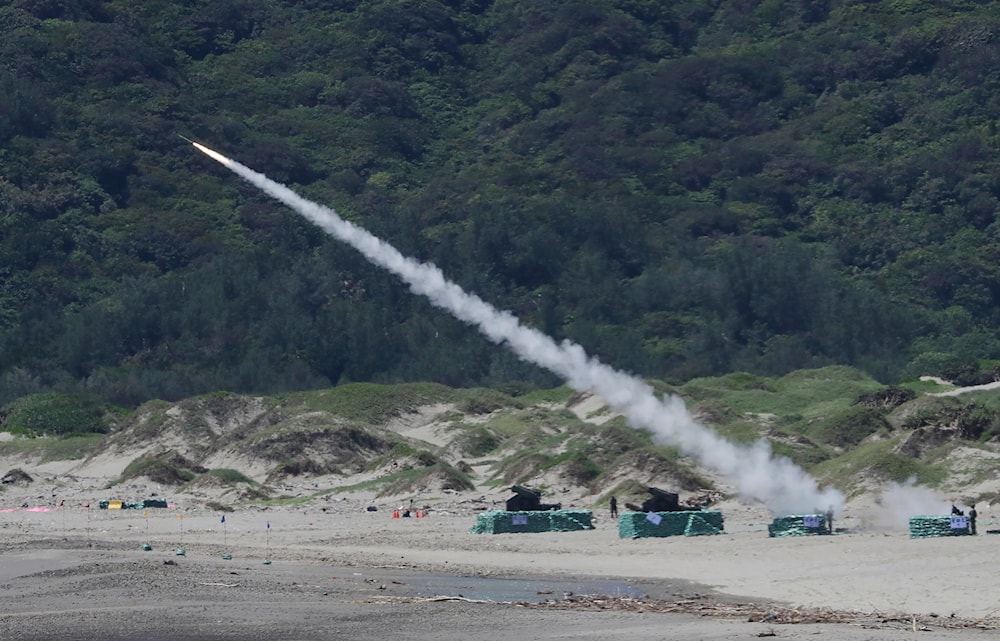US reportedly delivered Stinger missile systems to Taiwan
The latest US aid package includes 1,000 M240B guns, 80,000 sets of combat gear, aerostat radar systems, and Harpoon missile training systems.
-

A stinger missile is launched during a live fire drill in Pingtung County, Southern Taiwan, on Tuesday, July 4, 2023. (AP)
The Taipei Times reported that another set of man-portable air-defense (MANPAD) Stinger missile systems was delivered to Taiwan last year.
"Capital defense units, such as the Military Police, the Marine Corps, and the army’s special forces units, were prioritized to receive the weapons, which were authorized by the US’ National Defense Authorization Act (NDAA) to boost Taiwan’s self-defense capabilities," the newspaper cited sources as saying.
It added that the latest US aid package included 1,000 M240B guns, 80,000 sets of combat gear, aerostat radar systems, and Harpoon missile training systems.
The situation around Taiwan escalated following US House Speaker Nancy Pelosi's visit to Taipei last year; China considers Taiwan part of its territory and opposes any direct official foreign contact with the island.
Read next: China-Taiwan reunification, US weapons won't come in-between
Pelosi's visit led China to announce ending cooperation with the United States on a number of issues such as climate change, anti-drug efforts, and military talks.
China has repeatedly warned against US intervention in Taiwanese-Chinese affairs, emphasizing the necessity to avoid any false signals that give separatists the wrong impression.
During a regular press conference last month, Mao Ning, China's Foreign Ministry spokesperson, said the US "needs to earnestly abide by the one-China principle and stipulations of the three China-US joint communiqués, prudently and properly handle Taiwan-related issues, and stop official contact with the Taiwan region."
She then reiterated China's cemented stance against US intervention in Taiwanese elections, saying it sends separatists and independent forces the wrong message, as "there is only one China in the world. Taiwan is an inalienable part of China," adding that China firmly "opposes the US having any form of official contact with the Taiwan region."

 2 Min Read
2 Min Read








